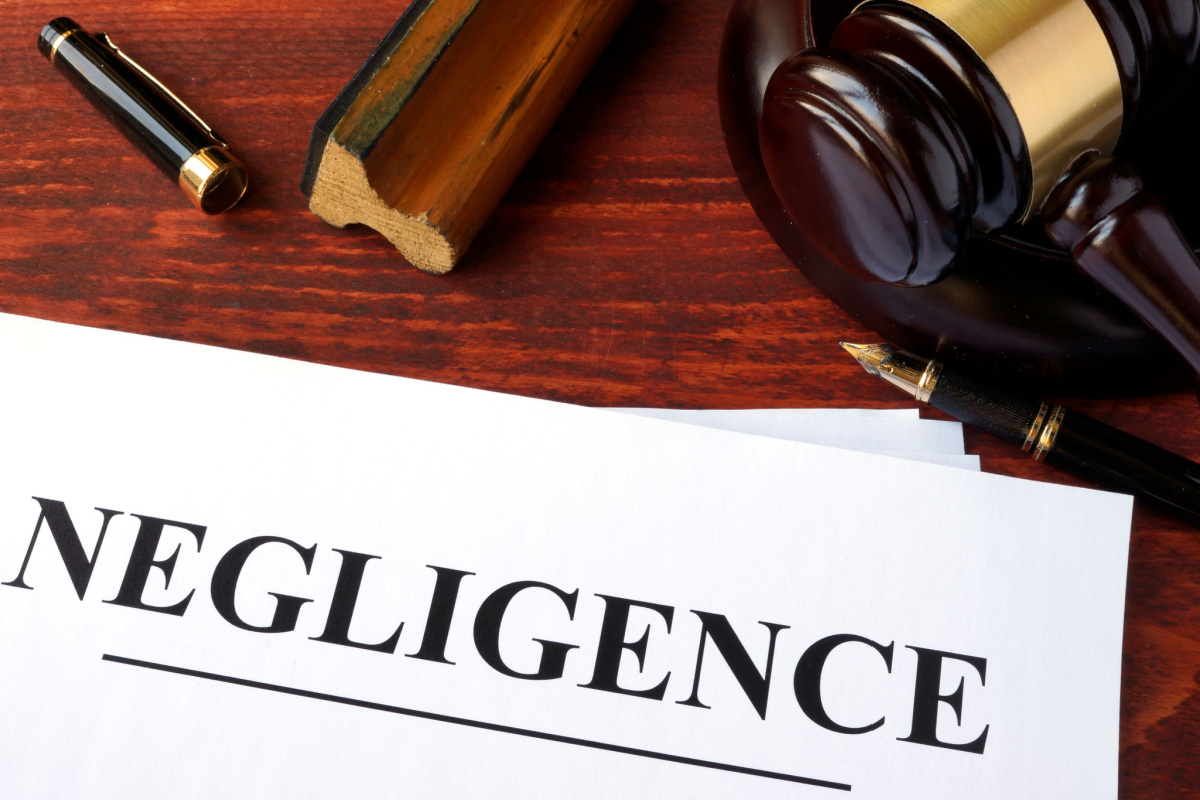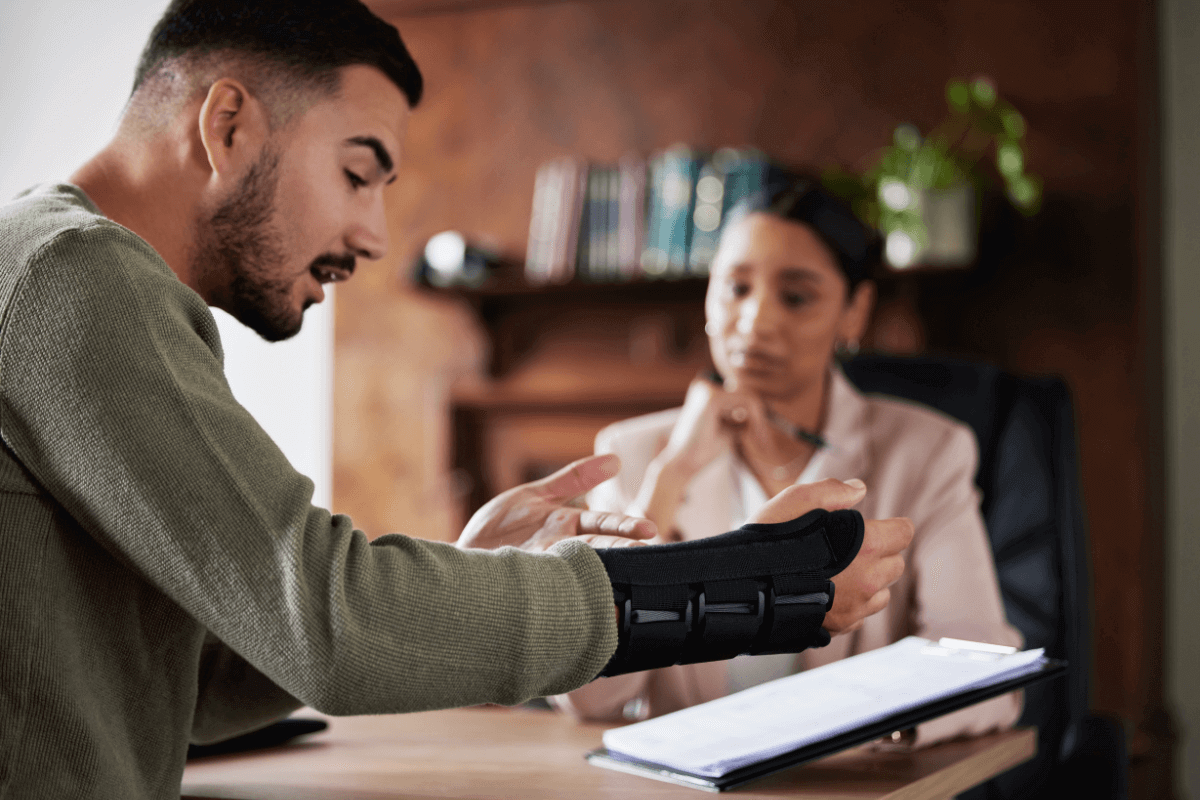
Partner at AKD Lawyers
Practice Areas: Personal Injury, Insurance Claims

If you’ve been injured in an accident in Louisiana, you might hear the term “comparative negligence” come up. It’s a key concept that can have a significant impact on how much compensation you receive in a personal injury case. Whether you slipped and fell, got into a car crash, or were hurt in another way due to someone else’s carelessness, understanding how fault is determined is essential.
In this post, we’ll break down what comparative negligence means, how it works in Louisiana, and what you should know if you’re involved in a personal injury case here. We’ll also go over Louisiana’s specific law, share real examples, answer some frequently asked questions, and explain how a law firm like AKD Law can help.
What Is Comparative Negligence?
Comparative negligence is a legal rule used to determine how much each party is responsible for an accident. In simple terms, if both you and the other party were partly at fault, your compensation would be reduced by your share of the blame.
Let’s say you were 20% at fault in a car accident, and your total damages were $100,000. You would only be able to recover $80,000. That’s how comparative negligence works — it splits the blame and adjusts the compensation based on who did what.
There are two main types of comparative negligence: pure and modified. Each state follows one or the other. In Louisiana, the rule is pure comparative negligence.
Louisiana’s Comparative Fault System
Louisiana follows the pure comparative negligence rule, which is one of the most forgiving systems for plaintiffs. Under this law, you can still recover damages even if you were 99% at fault — though that same percentage will reduce your compensation.
In Louisiana, the concept of comparative fault is governed by Louisiana Civil Code 2323. This law ensures that a plaintiff’s negligence doesn’t completely prevent them from recovering damages. However, the total damages recoverable are reduced in proportion to the plaintiff’s degree of fault.
So, if a jury finds you to be 40% responsible for your injuries, you can still collect 60% of the total compensation awarded. This law applies to all personal injury cases in Louisiana, including car accidents, slips and falls, and medical malpractice.
How It Affects Your Personal Injury Claim
The comparative fault rule directly impacts how much money you can receive in a lawsuit or settlement. The insurance company or court will look at all the facts and assign a percentage of blame to each party involved.

Here’s an example:
Imagine you’re driving, and someone runs a red light, hitting your car. However, you were also speeding. The court might decide you were 30% responsible for the accident. If your damages total $100,000, you would be eligible to recover $70,000.
Louisiana law employs a doctrine known as ‘comparative fault’ in negligence cases. This means that liability will be spread to everyone who contributed to the accident, in equal proportion to their proven fault.
This system ensures fairness, especially in complicated cases where multiple people may have contributed to what happened.
Comparative Negligence vs. Contributory Negligence
It’s essential to understand how comparative negligence differs from another legal rule known as contributory negligence. They sound similar, but the impact on your case can be very different.
Contributory negligence is much stricter. In states that follow this rule, if you’re even 1% at fault, you might be barred from recovering anything at all. That’s right — even a tiny bit of blame can prevent you from getting compensated.
By contrast, comparative negligence allows you to recover damages even if you’re partly or mostly at fault. That’s why Louisiana’s system is considered more fair to injured people.
Contributory negligence bars recovery if the plaintiff is found even slightly at fault, while comparative negligence allows for reduced compensation based on the degree of fault.
This difference matters a lot, especially when you’re trying to get help with medical bills, lost wages, and other expenses.
Real-Life Example: How Comparative Negligence Works in Louisiana
Let’s break it down with a case study. Suppose Maria is walking into a grocery store and slips on a wet floor that wasn’t marked with a warning sign. She hurts her back and needs medical treatment.
However, Maria was looking at her phone and didn’t see the water. In court, it was decided that the store was 70% at fault for not cleaning up or warning customers, but Maria was 30% at fault for not paying attention. Her damages amount to $50,000. Because she’s 30% at fault, her final compensation would be $35,000.
This example shows how comparative negligence doesn’t prevent recovery — it just adjusts it to reflect shared responsibility.
Recent Legal Discussions Around Comparative Fault

Legal scholars and courts continue to discuss the fairness and practical impact of comparative negligence laws. Some argue that these laws help balance justice and accountability, while others feel that assigning percentages of fault can be subjective and inconsistent.
Louisiana courts have also addressed how comparative negligence applies in complex cases involving multiple parties. This is especially important in truck accidents, workplace injuries, or product liability claims, where more than one person or company may be at fault.
One law review article from Indiana University’s McKinney School of Law offers an in-depth analysis of comparative fault trends and suggests that states are moving toward fairer systems like Louisiana’s.
Comparative fault has become the majority rule in the U.S., with more states recognizing that plaintiffs should not be barred from recovery simply because they made a mistake.
Frequently Asked Questions
What is comparative negligence?
Comparative negligence is a legal rule that reduces your compensation based on how much you were at fault for the accident. If you’re partly to blame, your recovery is adjusted accordingly.
How does Louisiana’s comparative negligence system work?
Louisiana follows a pure comparative fault system. You can still recover damages even if you were mostly at fault, but your share of the blame will reduce your compensation.
Can I still receive compensation if I’m partially at fault in Louisiana?
Yes. Even if you’re 90% at fault, you can still receive 10% of your total damages. Louisiana law allows for partial recovery in all personal injury cases.
How does comparative negligence differ from contributory negligence?
Contributory negligence prevents you from getting any compensation if you’re even 1% at fault. Comparative negligence allows you to recover a portion of your damages based on your percentage of fault.
Are there any exceptions to Louisiana’s comparative negligence rule?
There are a few exceptions, such as cases involving intentional harm. However, comparative negligence applies fully and fairly in most personal injury cases.
Conclusion: Know Where You Stand with Louisiana’s Law
Accidents aren’t always clear-cut. When more than one person is involved, Louisiana’s pure comparative negligence law helps ensure that even if you share part of the blame, you don’t lose your chance to recover compensation.
So here’s what you should remember: even if you think the accident was partly your fault, don’t assume you’re out of luck. You may still be entitled to money for your medical bills, lost wages, and the pain you’ve gone through. The amount you can recover depends on your percentage of fault — and that’s something a skilled New Orleans personal injury attorney can help you fight for.
At AKD Law, we’ve helped countless clients in Louisiana navigate cases just like this. Our team knows how to build a case that tells your side of the story clearly, confidently, and with the experience to back it up.
If you’ve been hurt and want to understand your rights, contact us today for a free consultation. We’re here to help you move forward.
Categories

In 2003, after being dissatisfied with the quality of legal care for victims of car accidents, Roderick ‘Rico’ Alvendia sought to establish a new firm focused on providing high-quality legal services to aid injured victims and their families. J. Bart Kelly, sharing Rico’s passion for upholding justice, joined the firm later that year, and established a partnership.






